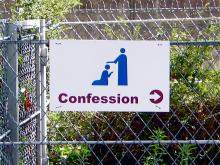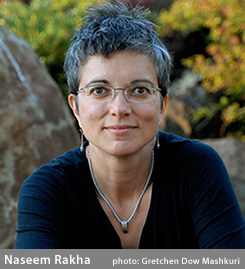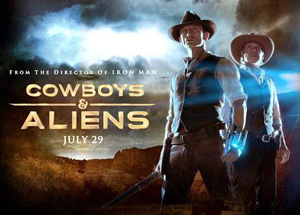Forgiveness

This is the final in a four-part series on the overused (and often insensitively employed) phrases that plague the Christian lexicon. Though I felt like I was offering some insight into what to do instead of offering these cliches, some asked for more specificity or clarity. So in that spirit, I thought I’d offer a final list of things to do rather than pop off with these phrases that may mean little or nothing to the recipient, or worse, may cause unintended – but lasting – harm.
Read article one in the series here: Ten Cliches Christians Should Never Use
Read article two in the series here: Ten More Cliches Christians Should Avoid
Read article three in the series here: Nine (Final) Christian Cliches to Avoid
Now, Ten Antidotes to Christian Cliches.

It amazes me how many Christians are willing to criticize those who have fallen. It seems that the Christian army are far too willing to shoot the wounded.
But shouldn’t we be the first ones to come alongside those who have fallen to show mercy, love, grace and compassion? Of all people in this world, shouldn’t Christians always root for restoration?
Central to the Christian faith is the claim that all men and women are sinful and broken, but through God’s mercy they are on the mend and experiencing new life. Those who follow Jesus claim God’s saving grace and forgiveness. Why is it then, so many seem unable or unwilling to give it?

Forgiveness is a form of suffering. Yes, you read that right.
Most of us talk about forgiveness and always speaks of how wonderful it is. But there is a reason so many can’t seem to forgive — it requires a willingness to suffer.
When people commit an offense against us, our natural inclination is to commit an offense against them. Not just any offense, but an offense that is bigger, badder, and one that hurts far more.
We call this revenge.
We tell ourselves that justice has been served, and believe this because deep inside of us, it feels really good to get even. Except, we didn’t get even — we got ahead. So vengeance will come back around to us. We will receive pay back, and then we will pay it back again. On it goes with vengeance — it never ends.

On Ash Wednesday, Catholics and many others will walk around with ashen crosses (or, by the end of the day, what look like indeterminate smudges) on our foreheads. Those ashes are strong symbols of core principles of the Catholic faith — symbols of repentance, identity, reconciliation, and renewal of baptism in the faith.
As a voting rights lawyer who is about as passionate about my work as I am about my faith, I can’t help but see parallels between the moral guidance I am given by my faith, and the policy choices that confront us in the secular world. These principles are reflected in the way we worship – and also in the actions we take in the secular world. This has led me and others to the conclusion that the 4 million Americans who lost their voting rights while incarcerated, and now live in our communities, deserve the chance to vote again upon release. It is both the just and the moral thing to do.
As we approach Ash Wednesday during this Holy Season, I encourage all Christians, guided by their core beliefs, to consider this idea.

The need for Red Letter Christians to no longer be labeled "evangelicals" became abundantly clear this past Saturday following the South Carolina Republican Primary. Most Evangelicals claim to be politically non-partisan, and say they only identify with the Republican Party because the Republicans are committed to "family values."
The truthfulness of that claim became questionable this past Saturday when South Carolina Evangelicals voted in surprisingly large numbers for Newt Gingrich, in spite of the fact that he's hardly a model husband in their eyes. Not only is he on his third wife, having had divorce papers served to one of them while she was lying in a hospital bed recovering from a mastectomy for breast cancer, but, if his second wife is to believed, wanted an "open marriage" so that he could have a sexual affair on the side.
Now Mr. Gingrich has been converted to Catholicism, and has, as part of his conversion, confessed his sin and asked for God's forgiveness. Evangelicals will say that this being the case we should forgive, forget and move on "to other concerns." I have to ask, however, why they didn't do this when a Democratic president repented of his sin?

Everybody needs forgiveness.
But it’s hard to face that. It feels threatening, like an accusation. So we tend to get defensive and start justifying ourselves, rather than seeing the one we’ve hurt.
If we’re honest, though, we all know that we’ve done things that have hurt others. Probably lots of things.
Yesterday Oregon Gov. John Kitzhaber announced a moratorium on all executions in the state, declaring capital punishment to be a “perversion of justice.”
Oregon has carried out two executions in the last 47 years, both during Kitzhaber's tenure as governor.
With convicted murderer Gary Haugen facing the death penalty on Dec. 6 — coupled with the governor's growing frustration with the death penalty — Kitzhaber had had enough and halted Haugen's execution as well as any in the foreseeable future.
"I refuse to be a part of this compromised and inequitable system any longer and I will not allow further executions while I am governor," Kitzhaber said in The Oregonian.
Sparing Haugen’s life is not only a powerful victory for his family and loved ones, but also for anti-death penalty activists such as Naseem Rakha, who has devoted much of her career to writing about capital punishment as a journalist and novelist.

In 'God's Country': Voting Wallets Over Religion. Why Evangelicals Forgive (Republican) Sex Scandals. The Gospel According To Herman Cain. Pope Asks African Catholics To Be ‘Apostles Of Reconciliation.’ Super Screwed. Congress May Try Blocking Cuts If Debt Panel Fails. Too Much Violence And Pepper Spray At The OWS Protests: The Videos And Pictures.
One year of prison costs more than one year at Princeton. Capitalism and social justice. OpEd: The values discussion we're not having. 'One Day's Wages' fights poverty two years on. Government aid helped cut U.S. poverty nearly in half. Religion-friendly democracy and democracy-friendly religion. And Newt Gingrich says God forgave him.

Because this week -- months after the Arab Spring, and after weeks of the growing Wall Street Occupation -- well, in this climate of discontent and dissent as we all begin to wake from our consumer induced coma to see how multi-national corporations control so much more than we can imagine, in a season when tyrants are being over thrown, I simply could not preach a sermon in which I say that God is like an angry murderous slave owning king. Maybe there is a way of finding good news in that but I just couldn't do it.

Naseem Rakha, author of the 2009 novel The Crying Tree sees justice differently. Rakha, an award-winning journalist whose work has been featured on National Public Radio and elsewhere, has covered two death penalty cases in Oregon -- the only two in that state's history -- and has spent considerable time exploring the deeper story behind capital punishment, retributive justice and forgiveness.
"What I learned from talking to these victims is that there is a place, not called closure, not called moving on, but there is a place of empowerment," Rakha said in a recent interview with God's Politics. "Crime strips people of power, and there's nothing that the justice system or really even churches can give to you to replace that power. It is an act of wanting to sit down and meet with the person who strips that power from you that has transformed people's lives and gotten them to a point where they can forgive the act, because they see the perpetrator no longer as a monster, but as a human that has made a terrible mistake."
When I was growing up, there was a house down the street from us which had slightly tattered window coverings and the front lawn was like a graveyard of broken things. Posted on the fence was a "No trespassing" sign. I remember asking my mother what trespassing was so I could be certain not to do it to anyone who lived in that weird house. When she explained that it meant going into their yard uninvited I thought, no problem. Soon after that, when I first learned the Lord's Prayer, I thought it was weird that out of all the sins that Jesus would suggest we ask God to forgive it would be our trespassing. I pretty much made it a policy to stay out of strange yards, and since no one seemed to wander into ours uninvited, I thought I was covered. Only later did I realize that trespassing was only one of countless was to trespass against others. And now I get it -- kind of. Forgive us our sins as we forgive those who sin against us. Jesus always seems to be pairing God's forgiveness of us with our forgiveness of others.
 Americans have a hard time knowing how to respond to the sins of our colonial past. Except for a few extremists, most people know on a gut level that the extermination of the Native Americans was a bad thing. Not that most would ever verbalize it, or offer reparations, or ask for forgiveness, or admit to current neocolonial actions, or give up stereotyped assumptions -- they just know it was wrong and don't know how to respond. The Western American way doesn't allow the past to be mourned or apologies to be made. Instead we make alien invasion movies.
Americans have a hard time knowing how to respond to the sins of our colonial past. Except for a few extremists, most people know on a gut level that the extermination of the Native Americans was a bad thing. Not that most would ever verbalize it, or offer reparations, or ask for forgiveness, or admit to current neocolonial actions, or give up stereotyped assumptions -- they just know it was wrong and don't know how to respond. The Western American way doesn't allow the past to be mourned or apologies to be made. Instead we make alien invasion movies.
Ten days after 9/11, Rais Bhuiyan, an immigrant from Bangladesh, was working at a gas station in Dallas, Texas when a man walked in with a gun. Thinking the store was being robbed, Bhuiyan opened the cash register
Smack dab in the middle of the Lord’s Prayer, obscured by old translations and otherworldly assumptions, is a radical cry for Jubilee justice